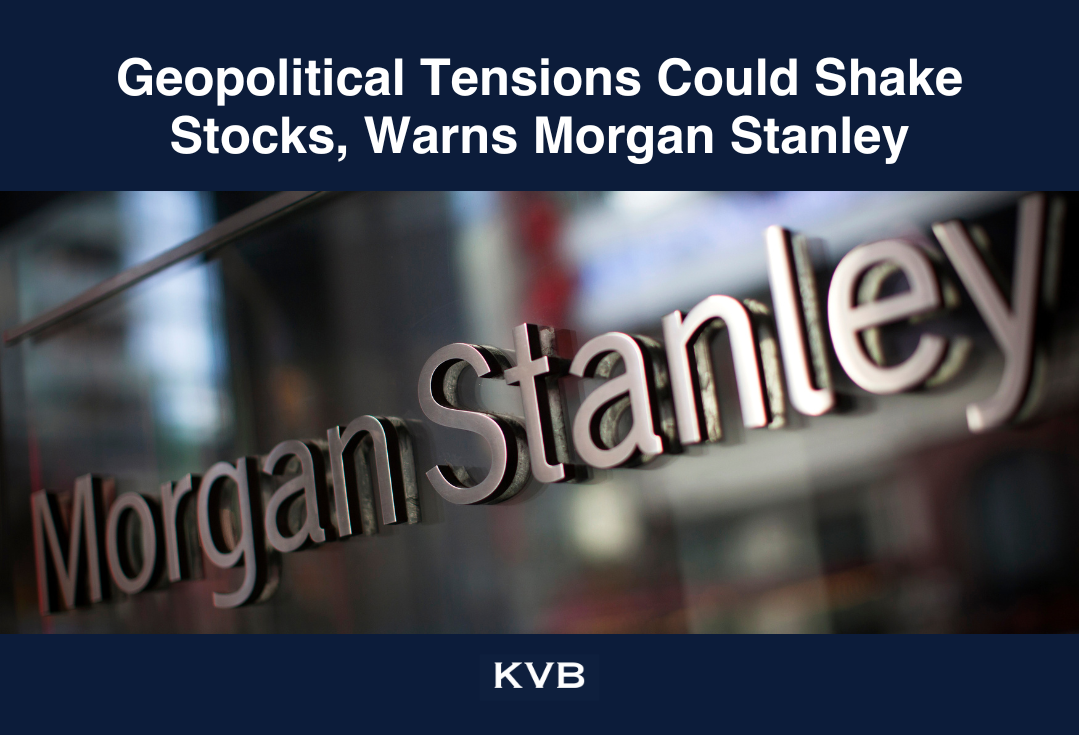


Morgan Stanley Warns of Worst-Case Scenario for Stocks Amid Middle East Tensions
Morgan Stanley has issued a stark warning regarding the potential impact of escalating Middle East tensions on global stock markets. The investment bank forecasts that the rising geopolitical risks could trigger a two-part worst-case scenario that would adversely affect global equity markets, leading to significant volatility in the near term.
A Two-Part Worst-Case Scenario
Morgan Stanley analysts suggest that the ongoing geopolitical tensions in the Middle East, particularly between Israel and Iran, have the potential to spark a chain reaction in the financial markets. The first part of this scenario would involve a sharp increase in oil prices, as any further disruptions in the region's supply could result in higher energy costs. Historically, rising oil prices have weighed heavily on global economic growth, putting downward pressure on stocks, especially in energy-sensitive sectors.
The second part of the scenario, according to Morgan Stanley, would be a flight to safety, where investors retreat to safe-haven assets such as gold, the U.S. dollar, and government bonds. This shift in investor sentiment would exacerbate the volatility in equity markets, as capital exits riskier assets like stocks in favor of more stable, low-yield investments.
The Potential Market Impact
While the worst-case scenario is not guaranteed, the risks associated with the Middle East conflict could have far-reaching consequences for the global stock market. The energy sector would be particularly vulnerable, with major oil-producing countries in the region already facing heightened uncertainty. Additionally, companies with significant exposure to the Middle East could face disruptions to their operations, leading to earnings downgrades and weaker stock performance.
Investors are already beginning to adjust their portfolios, with many choosing to hedge against geopolitical risk by increasing their positions in gold and defensive sectors such as utilities and consumer staples. The financial market's sensitivity to geopolitical developments means that any escalation in the region could lead to a sharp correction in equity prices, especially in the short term.
Managing Risk in a Volatile Market
Despite the risk posed by the Middle East tensions, Morgan Stanley emphasized the importance of diversification in investment portfolios. By maintaining exposure to a mix of assets, investors can better withstand the impact of geopolitical shocks while positioning themselves to capitalize on longer-term growth opportunities. Furthermore, investors are urged to monitor developments closely, as the situation in the Middle East remains fluid.
Conclusion
Morgan Stanley’s analysis underscores the heightened risks that geopolitical tensions pose to global stock markets, particularly in the context of rising oil prices and a potential flight to safety. While the two-part worst-case scenario is a possibility, investors should remain vigilant and consider hedging their portfolios to navigate the uncertainty ahead. As the situation in the Middle East unfolds, market volatility may persist, requiring careful risk management strategies for investors looking to protect their assets in the face of geopolitical instability.
Derivative investments involve significant risks that may result in the loss of your invested capital. You are advised to carefully read and study the legality of the company, products, and trading rules before deciding to invest your money. Be responsible and accountable in your trading.
RISK WARNING IN TRADING
Transactions via margin involve leverage mechanisms, have high risks, and may not be suitable for all investors. THERE IS NO GUARANTEE OF PROFIT on your investment, so be cautious of those who promise profits in trading. It's recommended not to use funds if you're not ready to incur losses. Before deciding to trade, make sure you understand the risks involved and also consider your experience.
